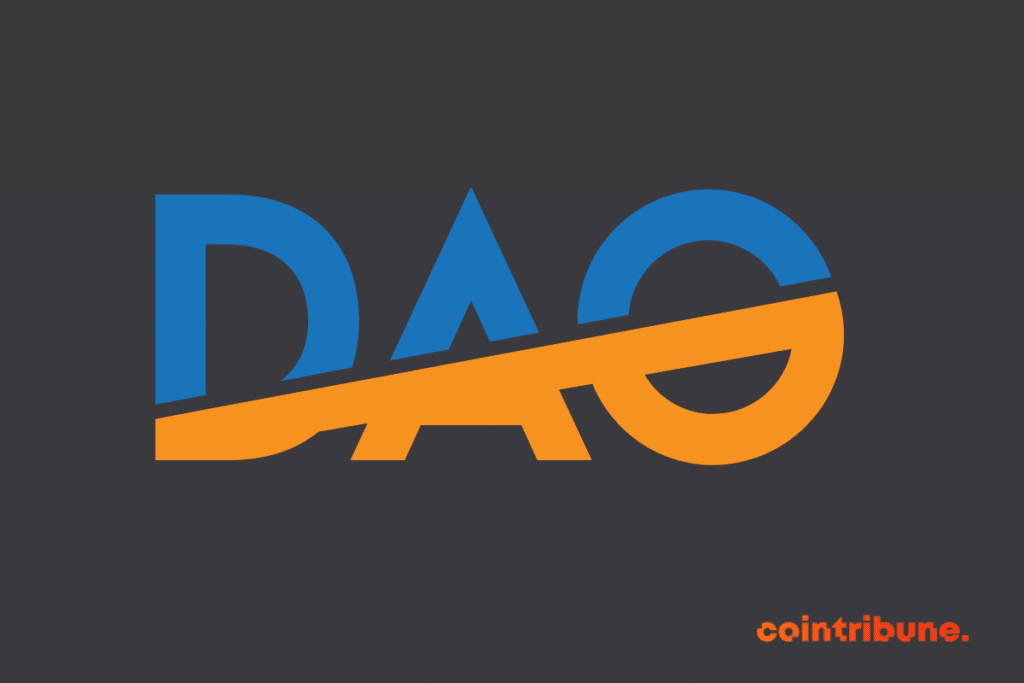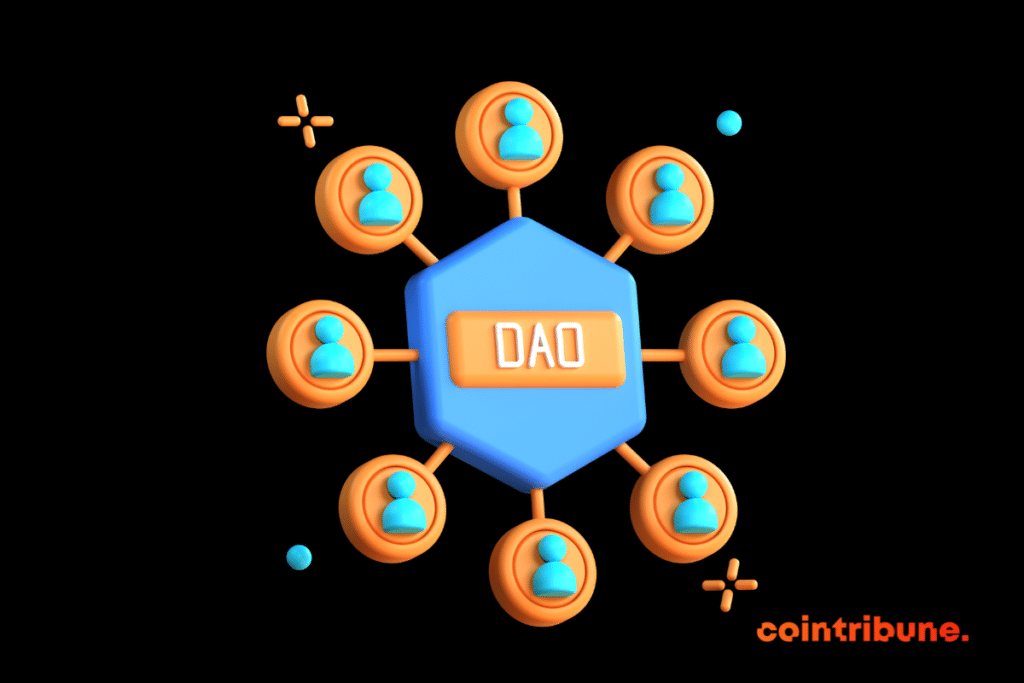DAO in Education: What New Opportunities?
In a world where technology constantly redefines existing paradigms, education is not left behind. The emergence of decentralized autonomous organizations (DAO) brings a new dimension to this crucial sector. These blockchain-based structures offer unprecedented possibilities to transform the way education is administered and delivered. Faced with a traditional educational system that is often rigid, DAOs provide a flexible and participatory alternative. This article explores the implications of DAOs in education, examining their functioning as well as the opportunities they offer and future trends in this field.

DAOs: Definition and Functioning
Decentralized autonomous organizations (DAOs) represent a revolutionary movement in the world of blockchain technology. They function as autonomous entities on the blockchain, governed by rules coded in the form of smart contracts. These organizations allow for collective decision-making without the intervention of a central authority, thus providing increased transparency and efficiency. Members of a DAO actively participate in governance, often through a voting system based on digital tokens.
Traditional Education vs DAO Approach
Education has always been a fundamental pillar in the development of our society. Traditionally, this sector is characterized by established structures and methods, led by educational authorities. However, the emergence of DAOs proposes a new dynamic, promising to profoundly transform the educational landscape.
Structure and Authority in Traditional Education
In the traditional educational system, the structure is hierarchical. Schools, under the direction of educational authorities, follow standardized programs. Teachers, trained to impart this knowledge, play a crucial role in educating children. Parents, while having an interest in their children’s education, often play a more passive role, relying on the school’s guidance. This approach has shaped generations, but it has limitations, particularly in terms of flexibility and adaptability to the individual needs of students.
The DAO: A New Form of Governance in Education
The DAO approach introduces a radically different governance model. In this framework, decisions are not made by a central authority but by a community of stakeholders, including teachers, parents, and sometimes even students. This democratic method allows for greater customization of teaching, with each community member having the opportunity to contribute to the educational process. This approach fosters a culture of learning that is more inclusive and adaptive, where programs can be constantly revised and improved to meet the changing needs of students.
Impact on the Role of Teachers and Parents
In an educational system influenced by DAOs, the role of teachers and parents evolves significantly. Teachers become learning facilitators rather than mere transmitters of knowledge. They collaborate with students and parents to develop a curriculum that better meets each child’s interests and abilities. Parents, for their part, are encouraged to take a more active role, participating in decisions that directly affect their children’s education. This close collaboration between teachers, parents, and students creates a more dynamic and personalized learning environment, reflecting the values and needs of the community.

Opportunities Offered by DAOs in Education
The integration of decentralized autonomous organizations (DAOs) into the education sector opens up a realm of unprecedented possibilities. These blockchain-based structures offer an innovative approach to managing and implementing educational programs. They promise to transform the way education is perceived, organized, and delivered, emphasizing personalization, collaboration, and innovation.
Personalization of Learning
Personalization is at the heart of the opportunities offered by DAOs. In a traditional educational system, programs are often rigid and uniform, failing to consider the individual needs of students. DAOs, on the other hand, enable the creation of learning environments where students can follow educational paths tailored to their unique interests and capabilities. This individualized approach is made possible by the decentralized nature of DAOs, where the decisions and contributions of each member of the educational community are valued. Teachers, in collaboration with parents and students, can develop programs that flexibly respond to various learning styles, thus fostering a more engaging and effective educational experience.
Collaboration and Participatory Governance
DAOs also revolutionize governance in the field of education. They promote close collaboration among all actors in the educational system: teachers, parents, students, and even educational authorities. This participatory approach ensures that every voice is heard and that decisions made reflect the needs and aspirations of the entire community. In such an environment, teachers are no longer solely responsible for the education of children; they become facilitators who work together with parents and students to co-create a dynamic and relevant curriculum. This synergy between different members of the educational community leads to pedagogical innovations, a better understanding of educational challenges, and solutions that are more adapted to contemporary realities.
Innovation and Expanded Access to Education
One of the greatest promises of DAOs in the education sector is their potential to stimulate innovation and expand access to education. By using blockchain technology, DAOs can facilitate the implementation of innovative educational projects, offering learning opportunities even in remote or disadvantaged regions.
Future Trends of DAOs in the Education Sector
The rise of decentralized autonomous organizations (DAOs) in the field of education is redefining teaching methods and school management. This evolution suggests a future where education is more accessible, personalized, and managed collaboratively. The future trends of DAOs in education point towards a significant transformation in how knowledge is shared and managed.
Decentralization and Democratization of Education
Decentralization is a key feature of DAOs, and its application in education promises to democratize access to knowledge. In the coming years, we could see schools and educational institutions adopting DAO models to manage their operations. This would mean that decisions regarding curricula, teaching methods, and even resource management would be made collectively by the educational community, including teachers, parents, and students. This approach could particularly benefit regions where access to quality education is often limited. DAOs could facilitate the establishment of educational programs tailored to local needs, while ensuring transparent and equitable management of resources.
Pedagogical Innovation and Educational Technologies
DAOs also encourage pedagogical innovation. By allowing various stakeholders to contribute to the educational process, they pave the way for new methods of teaching and learning. Educational technologies, such as online learning platforms and interactive tools, could be integrated more effectively and relevantly into curricula. Teachers, in collaboration with students and parents, could develop curricula that not only meet academic standards but are also aligned with the interests and aspirations of students. This approach promotes a more engaging learning experience that is suited to the challenges of the 21st century.
Global Collaboration and Cross-Border Educational Projects
Finally, DAOs in education could facilitate unprecedented global collaboration. Cross-border educational projects, supported by DAO communities, could emerge, allowing for the sharing of knowledge and resources beyond geographical boundaries. These projects could take various forms, ranging from virtual exchange programs to collaborative research initiatives. This trend towards enhanced international collaboration in education is particularly promising for developing countries, where DAOs could play a key role in promoting access to education and supporting innovative educational projects.
Conclusion
DAOs are profoundly transforming the landscape of education, introducing revolutionary management and teaching methods. They facilitate a more personalized and collaborative approach to education, actively involving teachers, parents, and students in the decision-making process. With their potential for innovation and democratization, DAOs are poised to become essential instruments for meeting the demands of modern education. They pave the way for a future where education is more accessible, adaptive, and aligned with the real needs of learners in a constantly evolving world.
Maximize your Cointribune experience with our "Read to Earn" program! For every article you read, earn points and access exclusive rewards. Sign up now and start earning benefits.
The Cointribune editorial team unites its voices to address topics related to cryptocurrencies, investment, the metaverse, and NFTs, while striving to answer your questions as best as possible.
The views, thoughts, and opinions expressed in this article belong solely to the author, and should not be taken as investment advice. Do your own research before taking any investment decisions.